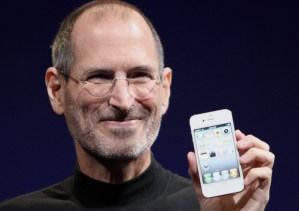
Google’s Android mobile operating system seems to have peaked at the number-one position in the U.S. smartphone market, but that doesn’t mean the race for market dominance is over. New survey data from ChangeWave conducted between June 6 and 15 finds that 46 percent of respondents looking to buy a new smartphone in the next 90 days were aiming at an iOS device, with 32 percent saying they’ll get an Android-based device.
The figures—which span over 4,100 respondents mostly in North America—actually represent a quarterly increase for both platforms: Back in March, 31 percent of new smartphone buyers said they were looking at Android, and 44 percent said they would be getting an iPhone.
In the latest figures, only four percent of respondents indicated their next smartphone would be a BlackBerry device; that’s down from the previous quarter’s figure of five percent.
In addition to leading smartphone buyers’ intentions, Apple also came out on top in terms of customer satisfaction, with 70 percent of iPhone owners indicating they were very satisfied with the devices. Some 50 percent of Android device owners indicated they were very satisfied, and 26 percent of BlackBerry users indicated they were very satisfied. A healthy 57 percent of Windows Phone 7 owners indicated they were very satisfied with their devices, but only 14 percent indicated they were very satisfied with devices running Microsoft’s early Windows Mobile operating system.
ChangeWave also looked at how Apple’s pending iCloud service might impact mobile phone buying intentions: some 29 percent of existing Apple owners said iCloud makes them more likely to buy Apple products in the future; the same went for 13 percent of non-Apple owners.


